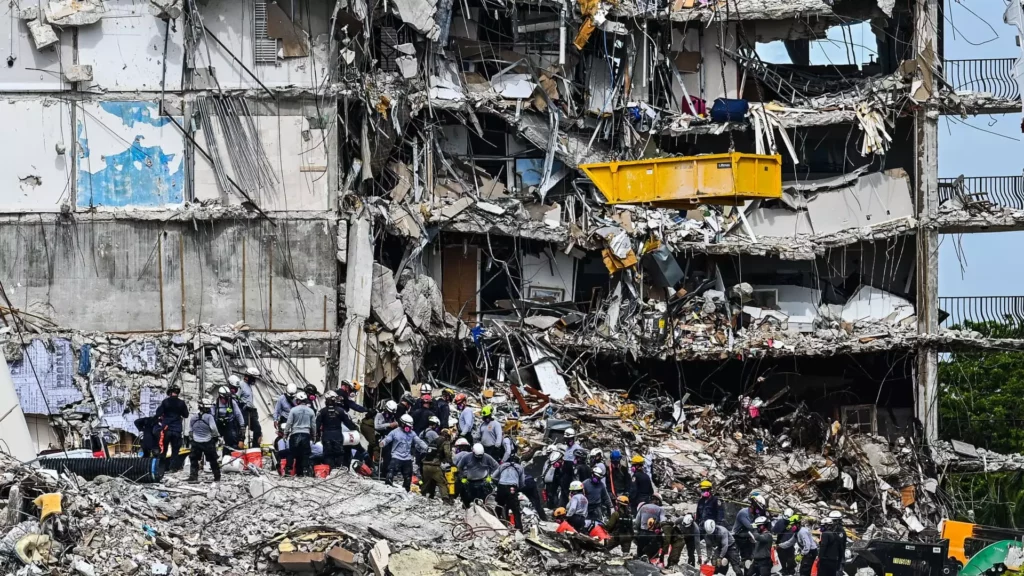The collapse of the Champlain Towers South in Surfside, Florida, in June 2021 sent shockwaves through the condominium market and raised serious questions about building safety regulations across the state. This tragic incident, which led to significant loss of life, highlighted the vulnerabilities of older residential structures and prompted lawmakers to take immediate action. In response, new measures were instituted mandating rigorous inspections and mandated reserve funds for condos aged 30 years or older. As the deadline looms, condominium associations are now grappling with rising costs and the pressing need for substantial renovations.
With inspections currently being conducted and repair costs nearing millions, many condominium owners—particularly retirees living on fixed incomes—are facing unprecedented financial challenges. Owners of approximately one million condominium units in Florida are now subject to these capital-intensive regulations. For many, the choice appears stark: either invest in costly upgrades or sell their properties—often for far less than their original purchase price. In this tumultuous market landscape, some owners are opting to simply walk away from their investments, while others are actively seeking investors to relieve their burdens.
Real estate analyst Peter Zalewski, from Condo Vultures, aptly describes the situation as approaching a “condo cliff.” He notes that this phenomenon mirrors the housing crisis witnessed during the Great Recession, where many buildings faced abandonment due to financial strain. In this precarious environment, those who can afford the maintenance costs find themselves bearing the financial load for those unable—or unwilling—to pay.
In a concerning trend for Florida real estate, statistics reveal that three-quarters of condominium units available for sale in South Florida—comprising Miami-Dade, Broward, and Palm Beach counties—have surpassed the critical 30-year mark. This age threshold exposes them to new regulations that require extensive renovations and financial disclosures. The summer season, typically a bustling time for market activity, saw a stark 21.5% decline in sales year-over-year, and prices dipped by 2.4%.
The existing housing market is significantly impacted by a surge in active listings, which increased by 60% in the third quarter compared to the previous year. Many associations are now imposing special assessments, often exceeding $200,000 per unit owner, to fund necessary repairs, leading to widespread outrage and anxiety among owners about their financial stability. The upcoming January notifications of maintenance costs have many residents bracing for a financial storm, a troubling forecast for those caught unprepared.
The state government is well aware of the potential fallout. Governor Ron DeSantis even called for a special legislative session to address the financial cliff facing condo associations. However, legislative leaders opted to defer any substantive changes until the routine session in early 2025. They expressed a need for more comprehensive financial data to make well-informed decisions regarding the future of such regulations.
Many experts, including real estate agents and investors, warn that the market for buyers is contracting rapidly. Prospective buyers are finding their options limited, often necessitating that sellers either absorb new maintenance assessments or significantly reduce their asking prices. Some condominiums, like the Bay Garden Manor on West Avenue, are being targeted for acquisition and redevelopment into more lucrative, luxury waterfront properties, indicating a pivot in investment strategies spurred by new market realities.
As the market continues to evolve, there’s growing speculation about foreclosures and short sales becoming more common in the near future. Current trends point to a complex landscape where uninformed buyers who previously viewed reduced prices as opportunities may soon discover the hidden pitfalls associated with aging properties. Properties that once seemed like affordable entry points into South Florida’s real estate market could become albatrosses, burdened by mounting fees and repair obligations.
Florida’s condominium market is navigating rocky terrain following the Surfside tragedy and the subsequent legislative changes. As associations grapple with regulatory compliance and the associated costs, homeowners face tough decisions that could profoundly alter their financial stability. With market dynamics shifting and investor interest in distressed properties on the rise, the long-term implications for Florida’s condo landscape remain uncertain, casting a shadow over what was once considered a reliable investment for many residents.

